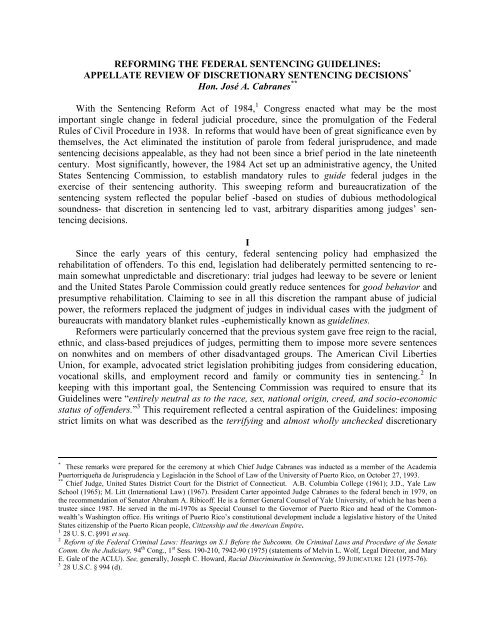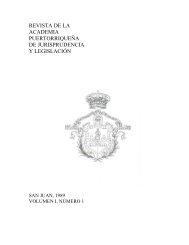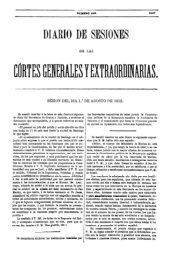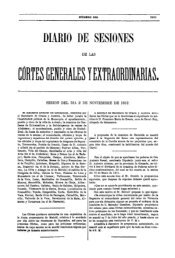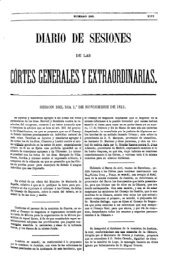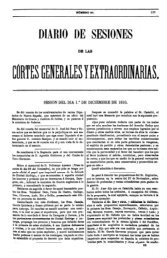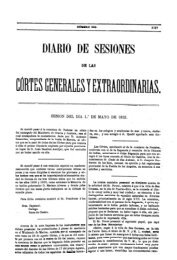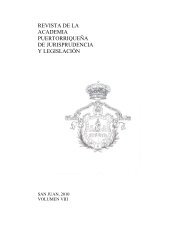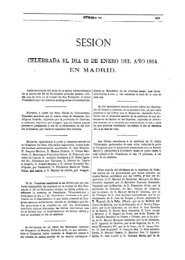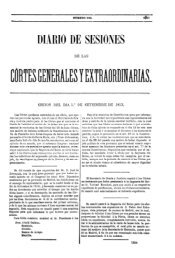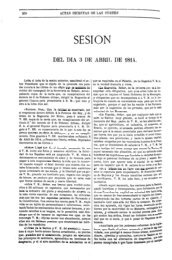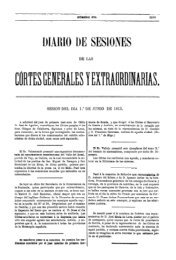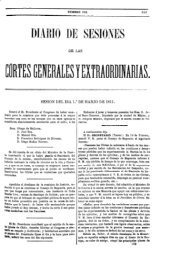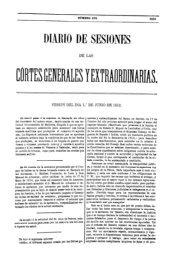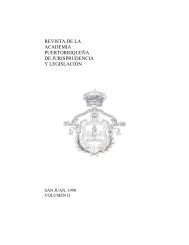REFORMING THE FEDERAL SENTENCING GUIDELINES:APPELLATE REVIEW OF DISCRETIONARY SENTENCING DECISIONS *Hon. José A. Cabranes **With the Sentencing Reform Act of 1984, 1 Congress enacted what may be the mostimportant single change in fe<strong>de</strong>ral judicial procedure, since the promulgation of the Fe<strong>de</strong>ralRules of Civil Procedure in 1938. In reforms that would have been of great significance even bythemselves, the Act eliminated the institution of parole from fe<strong>de</strong>ral jurispru<strong>de</strong>nce, and ma<strong>de</strong>sentencing <strong>de</strong>cisions appealable, as they had not been since a brief period in the late nineteenthcentury. Most significantly, however, the 1984 Act set up an administrative agency, the UnitedStates Sentencing Commission, to establish mandatory rules to gui<strong>de</strong> fe<strong>de</strong>ral judges in theexercise of their sentencing authority. This sweeping reform and bureaucratization of thesentencing system reflected the popular belief -based on studies of dubious methodologicalsoundness- that discretion in sentencing led to vast, arbitrary disparities among judges’ sentencing<strong>de</strong>cisions.ISince the early years of this century, fe<strong>de</strong>ral sentencing policy had emphasized therehabilitation of offen<strong>de</strong>rs. To this end, legislation had <strong>de</strong>liberately permitted sentencing to remainsomewhat unpredictable and discretionary: trial judges had leeway to be severe or lenientand the United States Parole Commission could greatly reduce sentences for good behavior andpresumptive rehabilitation. Claiming to see in all this discretion the rampant abuse of judicialpower, the reformers replaced the judgment of judges in individual cases with the judgment ofbureaucrats with mandatory blanket rules -euphemistically known as gui<strong>de</strong>lines.Reformers were particularly concerned that the previous system gave free reign to the racial,ethnic, and class-based prejudices of judges, permitting them to impose more severe sentenceson nonwhites and on members of other disadvantaged groups. The American Civil LibertiesUnion, for example, advocated strict legislation prohibiting judges from consi<strong>de</strong>ring education,vocational skills, and employment record and family or community ties in sentencing. 2 Inkeeping with this important goal, the Sentencing Commission was required to ensure that itsGui<strong>de</strong>lines were “entirely neutral as to the race, sex, national origin, creed, and socio-economicstatus of offen<strong>de</strong>rs.” 3 This requirement reflected a central aspiration of the Gui<strong>de</strong>lines: imposingstrict limits on what was <strong>de</strong>scribed as the terrifying and almost wholly unchecked discretionary*These remarks were prepared for the ceremony at which Chief Judge Cabranes was inducted as a member of the <strong>Aca<strong>de</strong>mia</strong>Puertorriqueña <strong>de</strong> Jurispru<strong>de</strong>ncia y Legislación in the School of Law of the University of Puerto Rico, on October 27, 1993.** Chief Judge, United States District Court for the District of Connecticut. A.B. Columbia College (1961); J.D., Yale LawSchool (1965); M. Litt (International Law) (1967). Presi<strong>de</strong>nt Carter appointed Judge Cabranes to the fe<strong>de</strong>ral bench in 1979, onthe recommendation of Senator Abraham A. Ribicoff. He is a former General Counsel of Yale University, of which he has been atrustee since 1987. He served in the mi-1970s as Special Counsel to the Governor of Puerto Rico and head of the Commonwealth’sWashington office. His writings of Puerto Rico’s constitutional <strong>de</strong>velopment inclu<strong>de</strong> a legislative history of the UnitedStates citizenship of the Puerto Rican people, Citizenship and the American Empire.128 U. S. C. §991 et seq.2Reform of the Fe<strong>de</strong>ral Criminal Laws: Hearings on S.1 Before the Subcomm. On Criminal Laws and Procedure of the SenateComm. On the Judiciary, 94 th Cong., 1 st Sess. 190-210, 7942-90 (1975) (statements of Melvin L. Wolf, Legal Director, and MaryE. Gale of the ACLU). See, generally, Joseph C. Howard, Racial Discrimination in Sentencing, 59 JUDICATURE 121 (1975-76).328 U.S.C. § 994 (d).
power of fe<strong>de</strong>ral judges. 4 In place of the human, discretionary element, the Gui<strong>de</strong>lines wouldrely on a body of appointed experts to draw up rules covering every circumstance andcontingency. The ultimate aim was to create a nearly automatic process, a sentencing algorithmthat would require all judges to compute the same sentences in the same types of cases. 5IIIt is increasingly clear to practitioners at the fe<strong>de</strong>ral criminal bar -and particularly to thejudges tasked with untangling this web for every convicted criminal- that the ambitious systemof sentencing automation has been a dismal failure. 6 No one familiar with contemporary fe<strong>de</strong>ralcriminal practice will need reminding of the pon<strong>de</strong>rousness and complexity of the Gui<strong>de</strong>linesthemselves. They take the form of a 258-box grid and 700 pages of accompanying commentary -nearly four pounds of documents to be use in <strong>de</strong>termining every sentence. In light of the RubeGoldberg qualities of the Gui<strong>de</strong>lines system, it is not surprising that there has <strong>de</strong>veloped, among“fe<strong>de</strong>ral judges and other who work daily in the system,” the “pervasive concern that theCommission’s gui<strong>de</strong>lines are producing fundamental and <strong>de</strong>leterious changes in the way fe<strong>de</strong>ralcourts process criminal cases and fe<strong>de</strong>ral judges use their time.” 7Even on their own terms, the Gui<strong>de</strong>lines have failed. First of all, the Gui<strong>de</strong>lines have noteliminated -in<strong>de</strong>ed, they have arguably exacerbated- the problem of arbitrary disparities amongsentences imposed for similar offenses. For example, a drug <strong>de</strong>aler convicted of selling a givenquantity of LSD might receive anywhere from as few a 10 months to as many as 235 months -adisparity of nearly 19 years- <strong>de</strong>pending upon whether he sold it in pure form, in gelatin capsules,on blotter paper or in sugar cubes. It is especially striking that members of racial and ethnicminorities continue to fare worse un<strong>de</strong>r the Gui<strong>de</strong>lines than wealthier non-minorities do. Sincemembers of these groups are statistically more likely to be convicted of crimes involving4Marvin E. Frankel, Criminal Sentences: Law Without Or<strong>de</strong>r 5 (1972). See also Marvin E. Frankel, Lawlessness in Sentencing,and 41 U. CIN. L. REV. 1 (1972). Interestingly, the effort to reform sentencing began with a reform of the parole release system,which promised nothing less than to provi<strong>de</strong> “a scientific and objective means of structuring and institutionalizing discretion.”William J. Genego, Peter D. Goldberg & Vicky C. Jackson, Project: Parole Release Decision-making and the SentencingProcess, 84 YALE L.J. 810, 823 (1975).5 Judge Frankel, in advocating the creation of an administrative agency of “prestige and credibility” to rationalize fe<strong>de</strong>ralsentencing, imagined “the possibility of using computers as an aid toward or<strong>de</strong>rly sentencing”. Frankel, Criminal Sentences: Lawwithout Or<strong>de</strong>r, supra notes, 4.6The Fe<strong>de</strong>ral Courts Study Committee created by Act of Congress and appointed by the Chief Justice, consulted 82 percentof sitting fe<strong>de</strong>ral judges and a broad cross-section of judges, <strong>de</strong>fense counsel and probation officers about dysfunctions in thecurrent sentencing system, before recommending, in 1990, that the Gui<strong>de</strong>lines be amen<strong>de</strong>d so as no longer to be rigidlymandatory and so as to allow consi<strong>de</strong>ration of an offen<strong>de</strong>r’s age and personal history. FCSC Report (April 2, 1990) (FCSCReport), at 137. The General Accounting Office of the U.S. Congress has noted that “central questions” of law and policy remainunanswered by the Commission’s work. Sentencing Gui<strong>de</strong>lines: Central Questions Remain Unanswered, GAO/GGD 92-93(1992). Although the American Bar Association’s Criminal Justice Section purportedly supports having a SentencingCommission, it has called the present Gui<strong>de</strong>lines a highly restrictive and mechanical process that unduly limits judicialdiscretion. ABA Criminal Justice Standards Committee, Sentencing Alternatives and Procedures (third ed.), adopted Feb. 9,1993, at 8. These bodies joined the growing chorus of judicial and aca<strong>de</strong>mic critics of the Gui<strong>de</strong>lines system. See, e.g., Albert W.Alschuler, The Failure of Sentencing Gui<strong>de</strong>lines: A Plea for Less Aggregation, 58 U. CHI. L. REV. 901 (1991); Dale Parent, Didthe United States Sentencing Commission Miss?, 101 YALE L.J. 1773 (1992); M. Tonry, The Politics and Processes of SentencingCommissions, 37 CRIME & DELINQUENCY 307 (1991); Charlie E. Vernon, Restoring Probation, Parsimony and Purpose to theSentencing Reform Act, 5 Fed. Sentencing Rep. 217 (1993). In the words of U.S. District Judge Judith Keep of San Diego (nowChief Judge of the Southern District of California): [t]he fe<strong>de</strong>ral sentencing gui<strong>de</strong>lines are not working. According to thelegislative history, the goal of the gui<strong>de</strong>lines was honesty, uniformity, and proportionality in sentencing... The gui<strong>de</strong>lines arefailing miserably in achieving any of these goals. Most significantly ... gui<strong>de</strong>line sentencing is contributing significantly to acriminal caseload crisis, which threatens to paralyze the district courts. FCSC Report, 141.7 FCSC Report, 135.
- Page 1 and 2: REVISTA DE LA ACADEMIA PUERTORRIQUE
- Page 3: 2enardecerá, en vez de corregir, l
- Page 9 and 10: través de la Ley, enardecerá, en
- Page 11 and 12: MEDICINE AND BIOLOGY: HOW FAR CAN T
- Page 13: unfair, in view of the total absenc
- Page 16 and 17: CONTESTACIÓN AL DISCURSO DEL HON.
- Page 18 and 19: la Oficina de Política sobre Cienc
- Page 20 and 21: códigos de ética existentes y los
- Page 24 and 25: narcotics and firearms, they tend t
- Page 26 and 27: Our faith in technology and plannin
- Page 28 and 29: single, all-powerful judge”. 17 W
- Page 30 and 31: CONTESTACIÓN AL DISCURSO DEL HON.
- Page 32 and 33: 3trafficking and gun-related offens
- Page 34 and 35: 5conduct which experience has shown
- Page 36 and 37: 2En este escrito trataré de establ
- Page 38 and 39: 4atender sus obligaciones económic
- Page 40 and 41: 6B. Juicio Público: Al igual que e
- Page 42 and 43: 8explicar la doctrina vigente. 47 A
- Page 44 and 45: 10tan serio disturbio emocional (
- Page 46 and 47: 12En Soto Ramos v. Superintendente
- Page 48 and 49: 14profesional y cómo ésta podría
- Page 50 and 51: 16Las implicaciones de esta exigenc
- Page 52 and 53: 18jurado. 116 Por otro lado, nuestr
- Page 54 and 55: 20forma rigurosa, de que la renunci
- Page 56 and 57: 22Tribunal Supremo ha seguido celos
- Page 58 and 59: 24protección es mayor que la que e
- Page 60 and 61: 264. Absuelto un acusado por determ
- Page 62 and 63: 28En Puerto Rico sólo cabe regular
- Page 64 and 65: 30B. Aplicación ex post facto de l
- Page 66 and 67: 32relación con el alcance 224 de l
- Page 68 and 69: 34se trata de una norma que comenz
- Page 70 and 71: 364) que la corroboración se relac
- Page 72 and 73:
38arresto. Bajo la Enmienda Cuarta,
- Page 74 and 75:
40razonable a la intimidad, no hay
- Page 76 and 77:
42Nuestra legislación permite la d
- Page 78 and 79:
44Derechos se dispone expresamente
- Page 80 and 81:
46Estados Unidos, adopta una posici
- Page 82 and 83:
2Aclarados esos puntos, coincido co
- Page 84 and 85:
La verdad es que los principios con
- Page 86 and 87:
EL DOLOR Y LA ANGUSTIA MENTALRamón
- Page 88 and 89:
3.7 8 9 10conocida y aceptada, hast
- Page 90 and 91:
5estímulo. Sin embargo, el punto e
- Page 92 and 93:
7de reconocimiento mundial, como ex
- Page 94 and 95:
dice que éste no distingue entre e
- Page 96 and 97:
11dos meses y medio más tarde cuan
- Page 98 and 99:
implicaciones negativas. Se debe de
- Page 100 and 101:
2naturaleza de los seres vivos, apl
- Page 102 and 103:
4de la clase dominante en la socied
- Page 104 and 105:
6su hora admitió ser identificado
- Page 106 and 107:
8cumpla la prestación que la norma
- Page 108 and 109:
10Encontramos la expresión todaví
- Page 110 and 111:
12La satisfacción de necesidades h
- Page 112 and 113:
14como aquí se propone, puede hace
- Page 114 and 115:
LOS DERECHOS HUMANOS FRENTE AL ESTA
- Page 116 and 117:
Como resultado, se ha llegado a un
- Page 118 and 119:
Yugoslavia, Georgia, Azerbaiján, A
- Page 120 and 121:
METASTESIS DE LA «RAZÓN» Y EL «
- Page 122 and 123:
fue quizás el producto de esa mism
- Page 124 and 125:
embargo, la corroboración de la ne
- Page 126 and 127:
VICuando Hegel, en su Phänomenolog
- Page 128 and 129:
del entendimiento (Verstehen) en el
- Page 130 and 131:
por el poder, por las estructuras y
- Page 132 and 133:
lo único que indica esta trasgresi
- Page 134 and 135:
Legislativa enmendó la Ley 53 orig
- Page 136 and 137:
Incluso, únicamente ofreció su t
- Page 138 and 139:
Al llegar a la gobernación en 1965
- Page 140 and 141:
Presidente del Tribunal Supremo y a
- Page 142 and 143:
Lamentablemente, vivimos en una soc
- Page 144 and 145:
1. El que en todas las acciones rel
- Page 146 and 147:
coordinación interagencial, con pa


